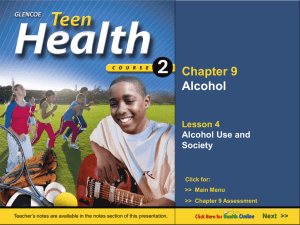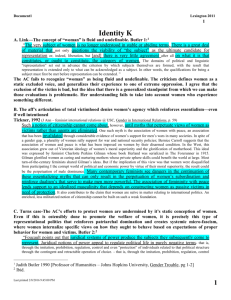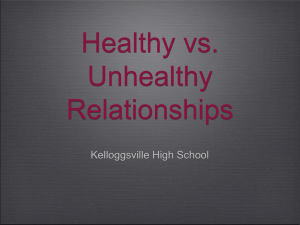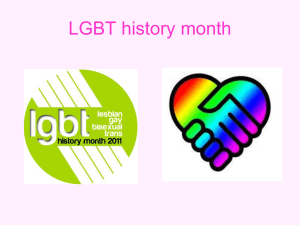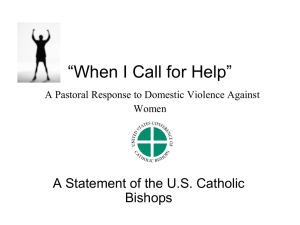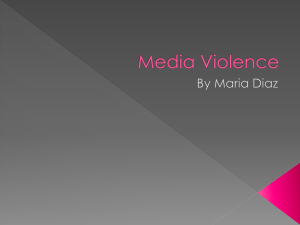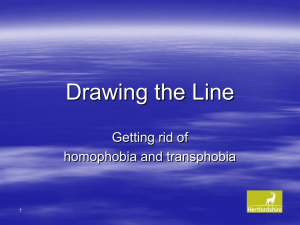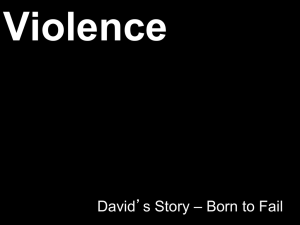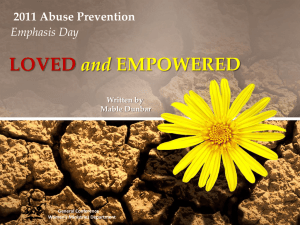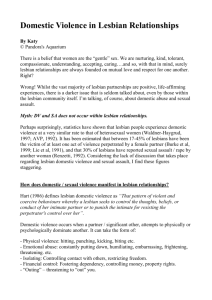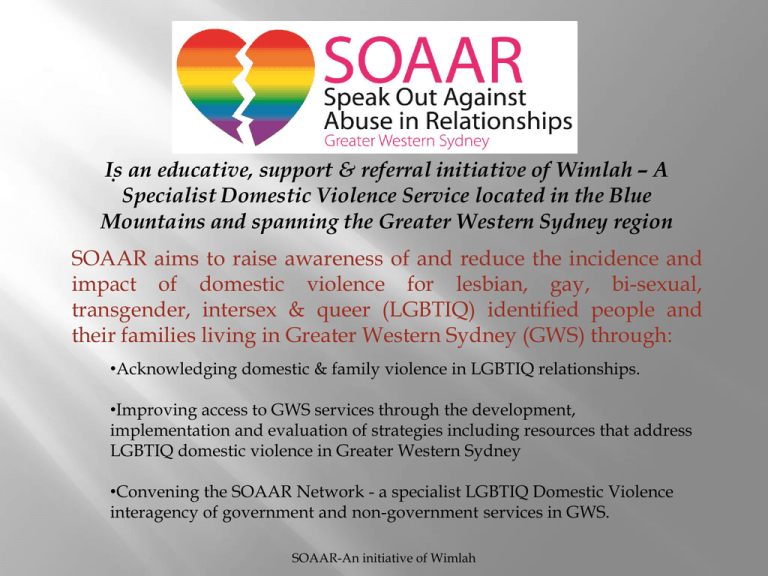
Is
. an educative, support & referral initiative of Wimlah – A
Specialist Domestic Violence Service located in the Blue
Mountains and spanning the Greater Western Sydney region
SOAAR aims to raise awareness of and reduce the incidence and
impact of domestic violence for lesbian, gay, bi-sexual,
transgender, intersex & queer (LGBTIQ) identified people and
their families living in Greater Western Sydney (GWS) through:
•Acknowledging domestic & family violence in LGBTIQ relationships.
•Improving access to GWS services through the development,
implementation and evaluation of strategies including resources that address
LGBTIQ domestic violence in Greater Western Sydney
•Convening the SOAAR Network - a specialist LGBTIQ Domestic Violence
interagency of government and non-government services in GWS.
SOAAR-An initiative of Wimlah
In 2010 the Australian Domestic and Family Violence Clearinghouse released a Special
Collection of research and resources on domestic and family violence in same sex
relationships.
http://www.adfvc.unsw.edu.au/specialcollectionssamesex.htm
Summary of findings include:
domestic and family violence occurs at relatively the same rate in same-sex
relationships as in heterosexual relationships,
same sex victims may experience the same forms of relationship abuse
that they may also be subject to additional threats and abuse related to their chosen
sexuality or gender, such as ‘outing’ to family, friends and others.
And that they may experience specific challenges around help seeking such as
combating homophobia and a lack of services.
SOAAR-An initiative of Wimlah
In Greater Western Sydney fewer government & non-government
services exist on the ground to both support and increase
community awareness of the health & safety needs of local lesbians
and their families.
Fewer services creates further isolation and increased fear for
lesbians and their families that they may experience
additional layers of homophobia & other forms of social
exclusion if they seek help.
Potentially 1 in 3 lesbians in GWS will experience domestic and
family violence, however few to date will report the abuse or
seek help. Lesbian DV is grossly under reported, under
researched and misunderstood. This needs to change.
SOAAR-An initiative of Wimlah
Patriarchal social structure
(perpetuates dv)
Heterosexual
Dominance
& Homophobia
Keeps Lesbian DV
Silenced & Hidden
SOAAR-An initiative of Wimlah
PATRIARCHY
SEXISM
SOAAR-An initiative of Wimlah
DOMESTIC
VIOLENCE
Conditioned
HETEROSEXISM
FEAR of Sexual
Difference
SOAAR-An initiative of Wimlah
HOMOPHOBIA
‘Homophobia’ as coined by psychologist George
Weinberg in the late 1960’s literally translates as the:
Dread of being in close quarters with
homosexuals
(this dread being associated with an
irrational fear of contagion and of
reducing the foundations of heterosexist
convention including religion, home and
family values).
SOAAR-An initiative of Wimlah
White,
Patriarchal,
Heterosexism
FEAR of
Difference
SOAAR-An initiative of Wimlah
RACISM,
Domestic Violence,
Homophobia
‘Social Inclusion’ =
VALUING DIFFERENCE
SOAAR-An initiative of Wimlah
SOAAR-An initiative of Wimlah
Sadly in 2011 no myths in our culture, media or compulsory
education exist thatnormalisethe concept that the princess
might also be rescued by her hand maiden resulting in both
women living happily ever after together.
We are all taught that the prince (the hero), slays the
dragon (monster) and marries the princess.
A society free from domestic violence is a society
that promotes social inclusion; a society that
openly celebrates sexual difference
and gender equality.
SOAAR-An initiative of Wimlah
AOD & Mental Health
Victims Shame
about the abuse
Social Exclusion
Victim combating
homophobia &
lack of services
Lack of
Comprehensive DV
education within the
community IE broader
community ignorance about
the full spectrum of DV
tactics
Research shows Lesbians will
be more likely to have
substance and/or mental
health issues including
suicidation & self harm
behaviours
Privacy Issues &
Negative Stereotyping of
Lesbians
Fear of being
ostracized from
lesbian community –
esp. in more rural or
remote areas
Partner Using Emotional
& Verbal Abuse
Victim may not be ‘out’, or
fear validating negative
stereotypes about being
lesbian
Bullying & belittling
behaviours
Gendered DV
Assumptions IE: that
Partner Using Children,
Pets, Economic Abuse &
Social Isolation
Partner Using Coercion
& Threats
DV is only perpetrated by
men onto women so workers
across services viewing both
women as the victims
SOAAR-An initiative of Wimlah
Lesbians not only have to deal with other people’s fear
of their sexuality ‘external homophobia’.
They also have to manage their own angst about being
sexually different ‘internal homophobia’
Imagine if you will, that you are a lesbian living Out
West experiencing abuse in your relationship, do you
believe you could choose comfortably to be open about
the abuse, to seek help from family, friends, community
or government services in your local area?
SOAAR-An initiative of Wimlah
9 Barriers to Safety Index for Lesbians
Homophobia external & internal is the over-arching barrier that
keeps lesbian DV hidden & filtering through every other safety
barrier
Homophobia
Health & Emotional
Stressors
Social Issues
History of Domestic
& Family Violence
Family Issues
Financial Barriers
Connection to
Perpetrator of
Violence
Social Exclusion
Lack of appropriate
services & skilled
workers that need to
be involved
Isolation Impacts
further compounded
by living in a more
conservative &
remote region
SOAAR-An initiative of Wimlah
SOAAR-An initiative of Wimlah
Myth: Lesbian domestic violence is the same as domestic violence between a man and a
woman.
Fact: The dynamics of same gender relationships are not the same as in heterosexual
relationships. The stresses of being without full legal protections and the lack of societal
support for their relationships are added stresses for any lesbian relationship. Therefore,
lesbians may not respond to stress & abuse within their relationship the same way as
heterosexual individuals do and their relationships may not look the same as heterosexual
relationships.
Myth: Lesbian violence occurs only in "butch" and "femme" relationships. The "butch" is the
perpetrator and the "femme" is the victim.
Fact: Regardless of the fact that most lesbians do not assume explicitly butch-femme roles, the
roles themselves do not automatically dictate who has more power or the desire to exercise
more control in the relationship.
Myth: Lesbian violence is caused by substance abuse, stress, childhood violence, or
provocation.
Fact: While these factors may account for an abuser's patterns of abusive behaviour, there is no
simple cause-and-effect relationship. Abusers have choices and can control their behaviour.
Abusers must assume responsibility for their actions; there's no excuse or justification for
violence.
SOAR-An initiative of Wimlah
Blue Mtns – larger demographic of older partnered & aging lesbians –
(10 or more years together) – research shows 1 in 4 women reporting
DV are over 45yrs
Property settlement issues - one person having joint assets in her name only.
Issues around access to shared pets and/or children, mediation, parenting
plans, non-biological parent rights & family law.
Women’s gendered economic disadvantage – higher if one or both women in
receipt of government pension as sole income.
Increased financial stressors since federal government began assessing lesbian
relationships as partnered. Impacts more women than men,women still
assume primary caring role of children; thereforeless opportunity for social
agency and unbroken professional development across their working life.
Long term impacts of either women’s drug or alcohol mis-use, deteriorating
mental health, and/or aging upon the relationship.
Wimlah has supported 7 lesbian women experiencing relationship abuse
since the inception of SOAAR. 1 has come into refuge whilst the other 6
have been supported in an outreach capacity. Their ages have ranged from
28 yrs to 82yrs with the majority of women being 40 yrs or older. Their
support periods have ranged from 2 months to 18 mths with an average
support period lasting 10 mths.
SOAAR-An initiative of Wimlah
Lesbians seeking support for relationship abuse young
(teens and early twenties) often living in clearly defined
husband/wife (heterosexist) roles, often with young
children conceived from either partner’s male family
members.
High incidence of physical & sexual abuse & promiscuity
within relationship & within the family of one or both
partners - history of intergenerational DV compounding the
abuse & increasingly the likelihood of relationship
breakdown.
Victimsnot willing or financially able to access specialist
supports in Sydney. Most will only help seek locally.
Women’s economic disadvantage (both parties often on very
low incomes) compounding their access to appropriate
counselling, parenting & legal supports.
SOAAR-An initiative of Wimlah
SOAAR-An initiative of Wimlah
Love is
supporting
each other
SOAAR – Inititave of Wimlah

